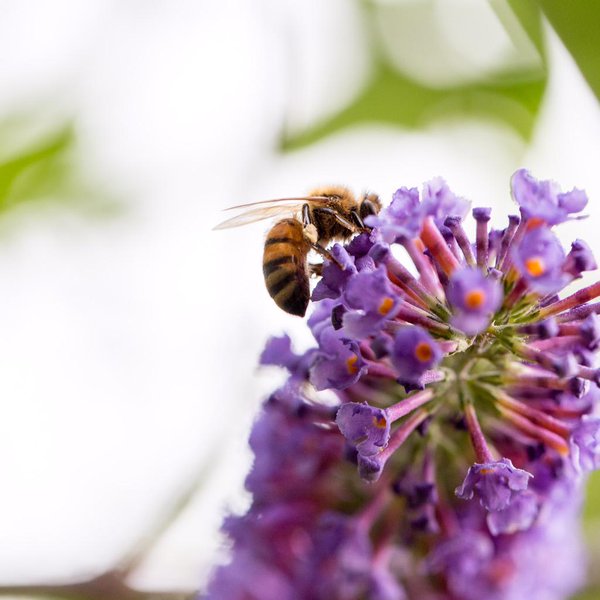By Steve Pak, | January 07, 2016

Honeybee on Flower
The Environmental Protection Agency (EPA) reported on January 6, Wednesday that a common pesticide used on nationwide crops including grains, fruits, and vegetables is a danger to honeybees. EPA regulators shared that the nicotine-like chemical imidacloprid found in almost 200 farming and household products in California could threaten bee hives when the pesticide contacts particular crops that attract bee pollinators.
Like Us on Facebook
The EPA's report was based on its concern that insecticides could be causing the destruction of honey bee colonies during the past decade. Bees add around $14 billion to the U.S. agricultural economy, according to The Sacramento Bee.
EPA reported that chemical residues over 25 parts per billion would probably harm bees and their hives, according to Reuters. It would also cause the buzzing insects to make less honey.
Federal regulators will conduct three more risk evaluations for the neonicotinoid class of pesticides. They are scheduled to be finished by the end of this year.
Charlotte Fadipe is a spokesperson for the California Department of Pesticide Regulation. She said that more EPA rules could result from the federal agency's findings.
Various crops in the Golden State rely on bees' pollination. They include almonds, oranges, apples, blueberries, grapefruits, cranberries, cucumbers, and pumpkins.
California farmers applied almost 144 tons of imidacloprid on over 1.5 million acres during 2013. Wine grape farmers were the top users of the chemical.
Many studies have connected high levels of neonicotinoids to various honeybee problems. They include ones involving hive communication and queen bees.
Full-scale bee colony collapses have greatly decreased for many years. However, the United States Department of Agriculture (USDA) reported last year that winter colony losses were about 4 percent higher than usual. The figure was around 23 percent.
Europe started a two-year freeze on imidacloprid last year. Meanwhile, the EPA proposed the use of pesticide-free zones in cases in which crops are in bloom and commercial bee pollinators are used.
-
Use of Coronavirus Pandemic Drones Raises Privacy Concerns: Drones Spread Fear, Local Officials Say

-
Coronavirus Hampers The Delivery Of Lockheed Martin F-35 Stealth Fighters For 2020

-
Instagram Speeds Up Plans to Add Account Memorialization Feature Due to COVID-19 Deaths

-
NASA: Perseverance Plans to Bring 'Mars Rock' to Earth in 2031

-
600 Dead And 3,000 In The Hospital as Iranians Believed Drinking High-Concentrations of Alcohol Can Cure The Coronavirus

-
600 Dead And 3,000 In The Hospital as Iranians Believed Drinking High-Concentrations of Alcohol Can Cure The Coronavirus

-
COVID-19: Doctors, Nurses Use Virtual Reality to Learn New Skills in Treating Coronavirus Patients







